With every book an author publishes, they find themselves face to face with a choice on which route they need to take for publication. Although every author has their own requirements and set of criteria that dictate their choice, there are certain factors that play a role in the outcome of this decision.
For instance, when publishing books, most authors focus on one thing—profit. A shared goal for many is to ensure they opt for publishing that secures the most profits and doesn’t burn a hole in their pockets. If we were to consider the previous years, it’s safe to say that online book publishing has been dominating the industry.
Having said that, many have found self publishing a book a much more feasible solution for publishing. Are you interested in learning how to publish a book yourself? Say no more. Our top experts have prepared a guide to help you with just that.
What Are the Options for Book Publishing?
Before you figure out how to get a book published, it’s best to get familiar with what options you can choose from. Generally, there are two solutions of how to publish a book:
· Traditional Publishing
Traditional publishing implies that your book will get published by a publishing house with the help of a dedicated team of specialists who will handle book design, marketing, sales, and other aspects of the process. If you’re interested in a more formal approach to publishing your book, then this decision is best for you.
However, keep in mind that it is often more exhausting and time-consuming. Usually, publishing houses refuse to accept author manuscripts from them directly; they prefer working with literary agents. So, whoever you’re working with, a publishing company or agent, you’ll need to draft a letter to submit your manuscript.
· Self Publishing
Self publishing is typically what follows up after the question of how to publish my own book consumes your mind. This route is taken by aspiring authors who want to have complete control of every part of the process from production to publication.
Self publishing is when the author chooses to print and distribute their books on their own without relying on publishing companies. As a result, through this method, you can have freedom over your work.
What Are the Pros of Self-Publishing?
Are you ready to learn how do you self publish a book? Well, before that, we’ll shed some light on the pros of self publishing. They are as follows:
· Creative Control
If there’s one thing every author deserves to have after spending months bringing their book to life, it is the ultimate control of the creatives. Self publishing provides just that, so as a self-published author, you have full control over your book’s content, cover design, pricing, and marketing strategies. When you self-publish, you have the freedom to make all the decisions about your book and call the shots.
· Faster Process
The biggest drawback of traditional publishing is the constant back and forth between literary agents and publishers. As a result, the process becomes incredibly laborious. However, self-publishing allows you to bring your book to market much faster than traditional publishing.
You don’t have to wait for agents or publishing houses to review and accept your manuscript; you can do things at your own pace.
· Higher Royalties
One of the best benefits of self publishing your book is that you get a golden chance to earn higher royalties per book sold, which traditional publishing doesn’t provide. Apart from that, you also don’t have to get stuck sharing your earnings with a publishing house, so you get the opportunity to earn more with each copy your book sells.
· Global Distribution
An undeniable perk of self publishing is global distribution. With self-publishing platforms like Amazon Kindle Direct Publishing, your book can be available worldwide. Readers from different countries can easily access and purchase your work. So, no matter where the reader is, your book can be accessible to them.
· Flexibility
Self-publishing gives you the flexibility to release your book on your own terms. You can choose the release schedules, book formats (e-books, print-on-demand), and pricing options. You can experiment and adjust based on feedback and market trends.
What Are the Drawbacks of Publishing Your Own Book?
Although there are a plethora of benefits to self-publishing your book, it also has a few drawbacks. Let’s get a clear perspective of them.
· Self-Promotion
When you self-publish, you become your own marketing team. You have to put in the effort to promote your book and get the word out there. It can be onerous and challenging, especially if you’re new to the world of marketing.
· Limited Industry Support
Traditional publishers often provide support in terms of editing, cover design, and distribution. As a self-published author, you may need to hire professionals or learn these skills yourself.
· Quality Control
Without the gatekeeping of traditional publishing, some self-published books may lack professional editing or have lower production values. It’s important to invest in professional editing and design to ensure a polished final product.
· Stigma
While self-publishing has gained more acceptance in recent years, there can still be a lingering stigma associated with it. Some readers, bookstores, and literary awards may prioritize traditionally published works.
· Financial Investment
Self-publishing involves upfront costs, such as editing, cover design, and marketing. You need to be prepared to invest in these aspects to produce a high-quality book.
To sum it up, self publishing has its fair share of pros and cons, but the decision comes down to your goals, preferences, and resources. This route offers creative freedom and profits but also requires dedication and self-promotion.
So, it’s best to consider your options and choose the path that aligns best with your objectives as an author.
Steps to Self Publish a Book
The secret to learning how to self-publish a book lies in these 8 steps. Without further ado, let’s discuss them in detail.
1. Pen Down the Book
While this can seem like an obvious step, it’s not always simple or easy to begin. Writing a book can be a taxing task, especially if you have no clue where to begin. If you aren’t sure what type of book you intend to write, then it’s best to do some legwork.
Doing so will allow you to find the inspiration you need to kickstart your writing journey. It will also allow you to gain the required knowledge you need to smoothly navigate things.
2. Edit Your Book
Editing your book is one of the most essential steps of the process and comes right after you’ve wrapped up the writing bit. Editing your book allows you to get rid of any blunders or errors, preventing your book from being perfect.
So, make sure you are diligent with this phase. For expert assistance, you can also hire a professional editor to ensure the job is done right and without any slip-ups. If you think you aren’t capable of handling this on your own, it’s best to get help, as it can save you from disasters in the long run.
3. Get a Book Cover
Before your book gets ready to be sold, it needs to be finished. Well, you may have written and edited it, but your book is incomplete if it doesn’t have a beautiful cover wrapped around it. Whether you intend to sell eBooks or physical copies of your book, it needs to have a cover to represent it.
If you already have an idea of what your book cover should be, start working on it. You can also get a designer on board to help you out.
4. Conduct Market Research
Before you start selling your book, you need to have valuable insights into the market, and that’s only possible if you conduct thorough research. This research is essential to determine the target audience for your book.
While it’s completely beneficial to know what demographics you intend to target prior to writing your book, conducting further research will put things into perspective. In simpler words, it will allow you to see clearly which individuals are most interested in your book.
5. Pick a Publishing Format
Before you start the publishing process, you need to choose the format where you want to publish it. Generally, hardcopy is one of the most popular formats for books, but considering the rise of the digital era, eBooks, print-on-demand, and audiobooks have also become common choices.
So, give it a thought and decide what format you want your book to be published in. Keep in mind that you can choose more than one format.
6. Choose the Publishing Platform
Once you’ve taken your pick and decided on the formats for your book, you can move on to the next phase—choosing the publishing platform. Whether you’ve published a few books or this is your first time, we’re sure you’re already familiar with just how famous Amazon is as a self publishing platform for books.
Amazon permits authors and others to pen down, edit, distribute, and market their books all on one platform. Some other popular platforms are:
- Apple Books
- Smashwords
- Barnes & Noble Press
- Draft2Digital
While you may be managing publishing all alone with self publishing, you are likely to need a professional to help you out. So, it’s best to turn to them, and they can guide you on what platform to publish on.
7. Publish Your Book
After you’ve followed the above steps, you can finally move to the most important bit—publishing your book. So, once your book has been completely finished and ready to be presented to the world, you can begin this phase and publish your book on your own using the platform you prefer.
8. Market Your Book
Regardless of the method you use to distribute your self-published book, promotion is essential for success in any market or business, be it your own online store or one like Amazon. It can seem almost difficult to publish your book without promotion, especially in today’s fiercely competitive online and offline markets and sectors.
When marketing your book, you can employ various tactics, such as creating a website, working on your social media and online presence, or getting in touch with other writers in the industry. Creating your own newsletter, starting an online store, and participating in digital advertising campaigns can all create awareness and a buzz for your self-published books.
Self publishing can be a better alternative than the traditional route in many ways for many. However, that doesn’t mean you have to do it on your own. There are many companies out there offering self publishing services that entail professionals guiding and helping you through this process.
Are you looking for a trustworthy company to assist you with that? Then, look no further than Global Ghost Writers, as they’re perfect for the task.
ABC is one of the most recognized companies in the country and a leading provider of wide-ranging services, including self publishing. Their services include publishing, marketing, writing, editing, and so much more.
Reach out to them to self publish your book on the best platforms out there!
FAQ's
The easiest way to start self publishing your book is by following the steps mentioned above. Once you reach the end of the page, you will already have enough knowledge to begin the procedure. So, just follow all these 8 steps, and you’ll be good to go.
Self-publishing is sought after because of its affordable costs. In fact, many platforms actually allow authors and interested individuals to publish their books for free. So, yes, you can also do the same, but make sure you do your research to make an informed choice.
Yes, you can self-publish your book without copyright. However, it’s important to understand the implications of not having copyright protection. Without copyright, others may be able to use your work without your permission. It’s generally recommended to secure copyright to protect your intellectual property.


